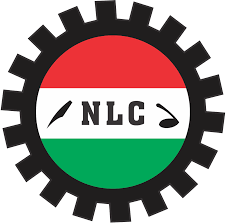By Esenvosa Izah
The Association of Senior Civil Servants of Nigeria (ASCSN) has expressed confidence that the Federal Government will pay arrears of wage award to its workers.
The ASCSN National President, Mr. Shehu Mohammed, gave the assurance in an interview with the News Agency of Nigeria (NAN) on Sunday in Lagos.
“Workers are going to get their arrears because, while negotiating the new minimum wage, we raised the issue of wage award.
“It was explained and approval was shown that the wage award would continue until the payment of the minimum wage would take effect.
“Of recent, even after the implementation of the minimum wage, there was a meeting with the Office of the Secretary to the Government of the Federation.
“It was agreed that the government will pay the wage award,” he said.
On the new minimum wage, the labour leader said that the implementation had started.
According to him, there will also be payment of arrears.
“All workers of the Federal Government, whether in the core civil service or Ministries, Departments, and Agencies (MDAs), are going to receive arrears with effect from the month the President assented to the bill, which is July.
“There is no going back on that.
“In fact, during the negotiation, we insisted that payment of the arrears should come along with the commencement of payment, but we realised that if we insist on that, there would be delay,” he said.
Shehu said that core civil servants deserved an extra-month salary known as a 13th-month salary.
He said: “It is apt, taking cognisance of the fact that even the minimum wage implementation has come at a time when economic hardship has risen.
“In view of this, there is no person that deserves this more than the core civil servant.”
On allowances, another labour leader, Mrs. Roselyn Uba-Anara, said that peculiarity allowance especially was at the discretion of MDAs.
Uba-Anara is the National President of the Nigeria Union of Public Service Reportorial, Secretarial, Data Processors, and Allied Workers.
“Minimum wage is a law, subject to review—three years now; it was formerly five years.
“Allowances are at the discretion of MDAs, especially peculiarity allowance. It is whatever is agreed on at the negotiation table; it is an agreement, not a law.
“Individual MDAs can decide what allowances are peculiar to them.
“Minimum wage is distinct. It is a law,” she said.
